Biden's 'empty threats' let Israel get away with horrors in Gaza: Prominent US journalist
An investigative American journalist says the Biden administration repeatedly undermined international institutions and damaged US credibility in a desperate attempt to shield Israel during the regime's aggression against the people of the besieged Gaza Strip.
Brett Murphy, a Pulitzer Prize finalist in 2018 for his investigative reporting series, said in a recent article published on ProPublica that Biden’s record of repeated empty threats had given the Israelis a sense of impunity.
The reputed journalist spoke with scores of current and former officials throughout the year and read through government memos, cables and emails, many of which have not been reported previously.
The records and interviews shed light on why Biden and his top advisers refused to adjust his policy even as new evidence of Israeli abuses emerged.
The author maintains that almost none of the US's demands that Israel improve conditions in the besieged Palestinian territory had been met.
Biden’s failure to follow through led to impunity for widespread human rights abuses, including blocking aid deliveries, even after explicit US warnings, he wrote.
In October, US Secretary of State Antony Blinken and the administration delivered their most explicit ultimatum yet to Israel, demanding the army allow hundreds more truckloads of food and medicine into Gaza every day.
The October red line was the last one Biden laid down, but it wasn’t the first. His administration issued multiple threats, warnings and admonishments to Israel.
Soon after, when the 30-day deadline was up, Blinken made it official and said that Israelis had begun implementing most of the steps he had laid out in his letter. The top US diplomat's position was immediately called into question.
In the month that followed, the Israeli military was accused of roundly defying the US, its most important ally.
The Israeli military tightened its grip, continued to restrict desperately needed aid trucks and displaced 100,000 Palestinians from North Gaza, humanitarian groups found, exacerbating what was already a dire crisis “to its worst point since the war began."
On Nov. 14, a UN committee said that Israel’s methods in Gaza, including its use of starvation as a weapon, were “consistent with genocide.”
The international rights groups went further and concluded a genocide was underway.
The International Criminal Court also issued arrest warrants for Israeli prime minister Benjamin Netanyahu and his former war minister Yoav Gallant for the war crime of deliberately starving civilians, among other allegations.
Time and again, Israel crossed the Biden administration’s red lines without changing course in a meaningful way, according to interviews with government officials and outside experts.
Last spring, the president vowed to stop supplying offensive bombs to Israel if it launched a major invasion into the southern city of Rafah.
The Biden administration told Netanyahu the US was going to rethink support for the war unless he took new steps to protect civilians and aid workers after the Israeli military blew up a World Central Kitchen caravan.
And Blinken signaled that he would blacklist a notorious Israeli unit for the death of a Palestinian-American in the West Bank if the soldiers involved were not brought to justice.
The southern city of Rafah was supposed to be a haven for hundreds of thousands of Palestinians who the Israeli military had forced from their homes in the north at the start of the war.
“It is a red line,” Biden had said, marking the first high-profile warning from the US.
Netanyahu invaded in May anyway. Israeli tanks rolled into the city and the Israeli soldiers dropped bombs on residential areas, including a refugee camp, killing dozens of civilians.
Biden responded by pausing a shipment of 2,000-pound bombs but otherwise resumed military support.
In late May, the International Court of Justice ordered Israel to stop its assault on the city, citing the Geneva Conventions.
Behind the scenes, State Department lawyers scrambled to come up with a legal basis on which Israel could continue smaller attacks in Rafah.
Several experts told the author that international law has been effectively discretionary for some states or entities.
Each time, the US yielded and continued to send Israel’s military deadly weapons of war, approving more than $17.9 billion in military assistance since late 2023, by some estimates. The State Department recently told Congress about another $8 billion proposed deal to sell Israel munitions and artillery shells.
There is a ceasefire deal, so I want to share this story from my past year reporting inside the State Dept. trying to answer the central question of Biden’s foreign policy:
— Brett Murphy (@BrettMmurphy) January 15, 2025
How did the U.S. let Israel get away with widespread horrors in Gaza? 1/
“It’s hard to avoid the conclusion that the red lines have all just been a smokescreen,” said Stephen Walt, a professor of international affairs at Harvard Kennedy School and a preeminent authority on US policy in the region. “The Biden administration decided to be all in and merely pretended that it was trying to do something about it.”
Throughout the contentious year inside the State Department, senior leaders repeatedly disregarded their own experts.
They cracked down on leaks by threatening criminal investigations and classifying material that was critical of Israel.
Some of the US top Middle East diplomats complained in private that they were sidelined by Biden’s National Security Council.
The council also distributed a list of banned phrases, including any version of “State of Palestine” that didn’t have the word “future” first.
Two human rights officials said they were prevented from pursuing evidence of abuses in Gaza and the occupied West Bank.
During a series of internal State Department meetings, top regional diplomats voiced their frustrations about messaging and appearances. Hady Amr, one of the government’s highest-ranking authorities on Palestinian affairs, said he was reluctant to address large groups about the administration’s Israel policy.
US Ambassador to Israel Jack Lew told the Times of Israel he worried that a generation of young Americans would harbor anti-Israel sentiments into the future.
The repercussions for the United States and the region will play out for years.
Protests have erupted outside the American embassies in Muslim-majority countries like Indonesia, the world’s third-largest democracy, while polls show Arab Americans grew increasingly hostile to their government stateside.
By the summer, State Department analysts in the Middle East sent cables to Washington expressing concerns that the Israeli military's conduct would only inflame tensions in the West Bank and galvanize young Palestinians to take up arms against Israel.
On Wednesday, after months of negotiations, Israel and Hamas reached a ceasefire deal.
Early reports suggest if the Biden administration had followed through on its tough words, a deal could have been reached earlier, saving lives.
“Netanyahu’s conclusion was that Biden doesn’t have enough oomph to make him pay a price, so he was willing to ignore him,” said Ghaith al-Omari, a senior fellow at The Washington Institute.
“Part of it is that Netanyahu learned there is no cost to saying ‘no’ to the current president,” Omari said.
Over the past 15 months, Israeli soldiers have videotaped themselves burning food supplies and ransacking homes. One Israeli military group reportedly said, “Our job is to flatten Gaza.”
Israel’s defenders within the US administration acknowledge the devastating human toll but contend that American arms have helped Israel advance Western interests in the region and protect itself from other enemies.
VIDEO | Israel approves land registration in West Bank’s Area C, raising Palestinian annexation fears
VIDEO | Press TV's news headlines
Iran: World bears responsibility to counter Israel’s rights violations in West Asia
Saudi Arabia condemns Israel’s seizure of West Bank land, warns of regional instability
Israeli producer of anti-Iran propaganda series ‘Tehran’ dies in Greece
Diplomacy and deterrence: Iran focused on reaching nuclear deal – without compromise
British Museum faces backlash for eliminating references to ‘Palestine' from displays
Global outage hits X users: Thousands report access issues


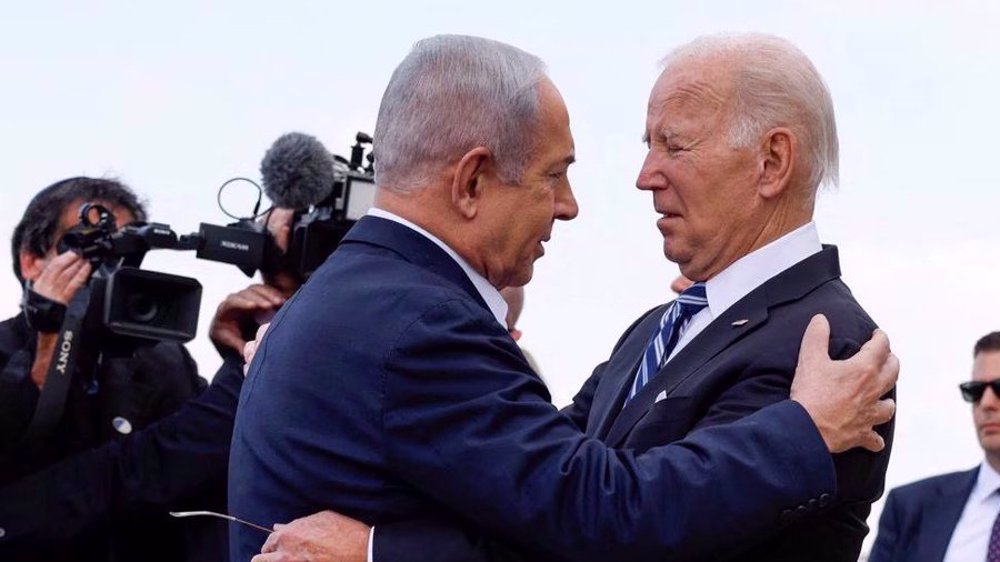


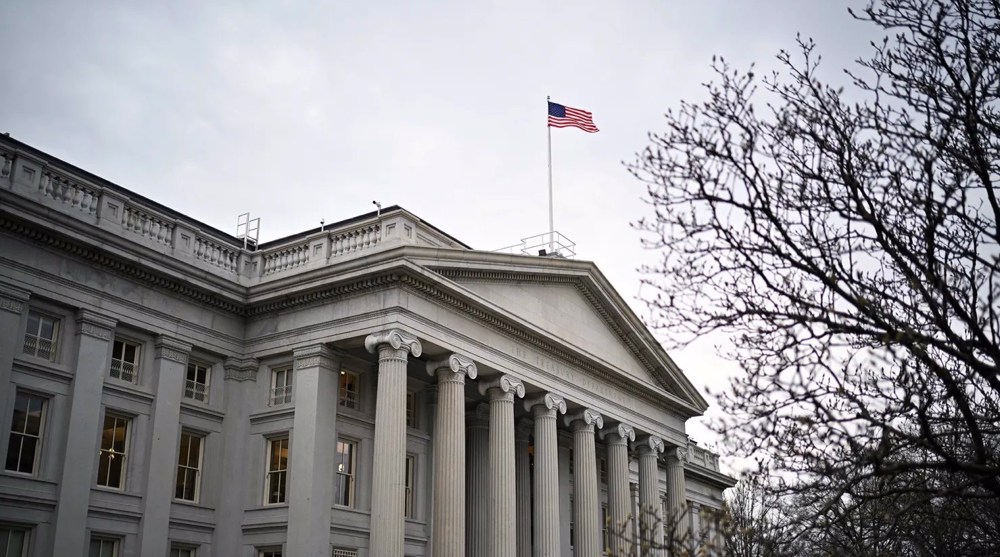
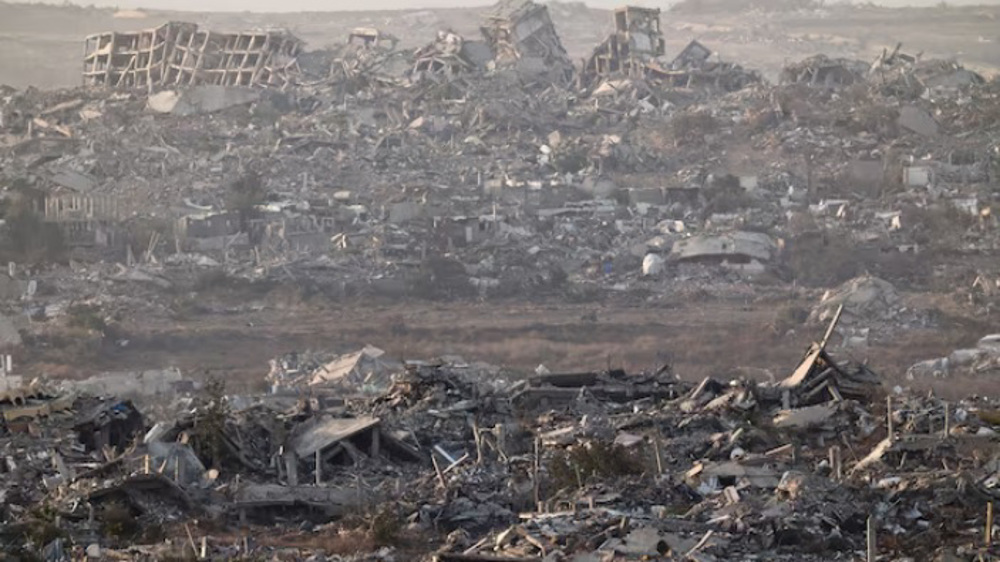

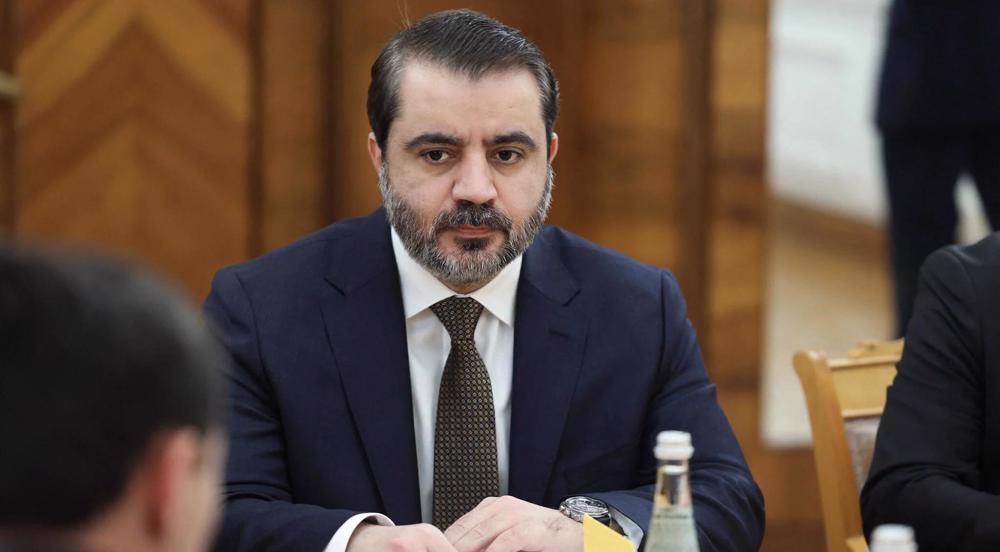



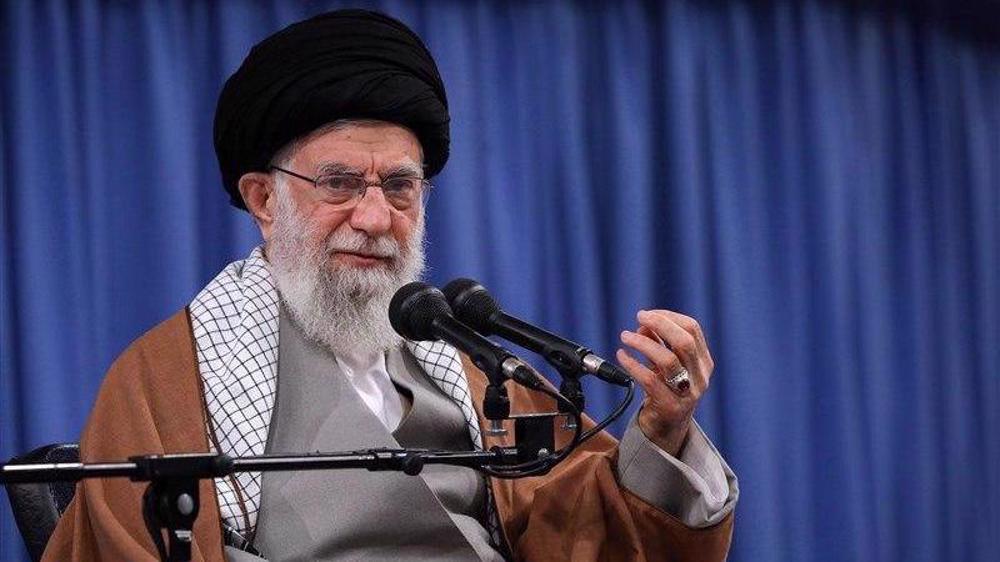

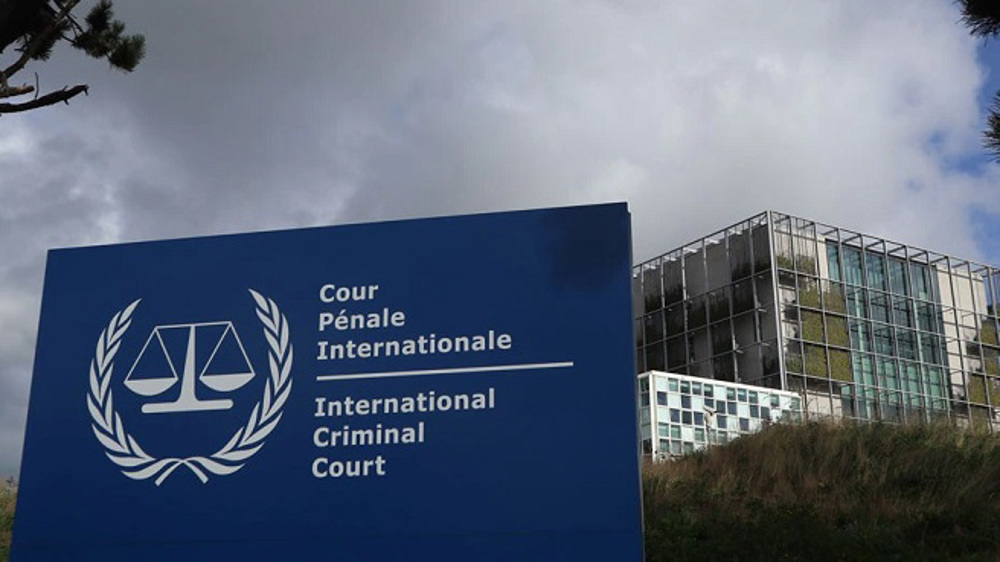
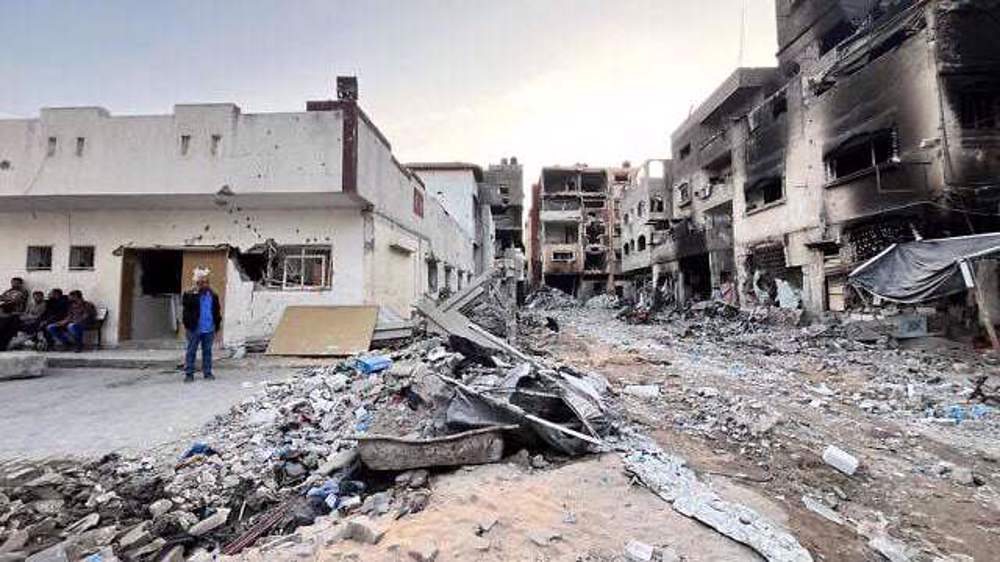
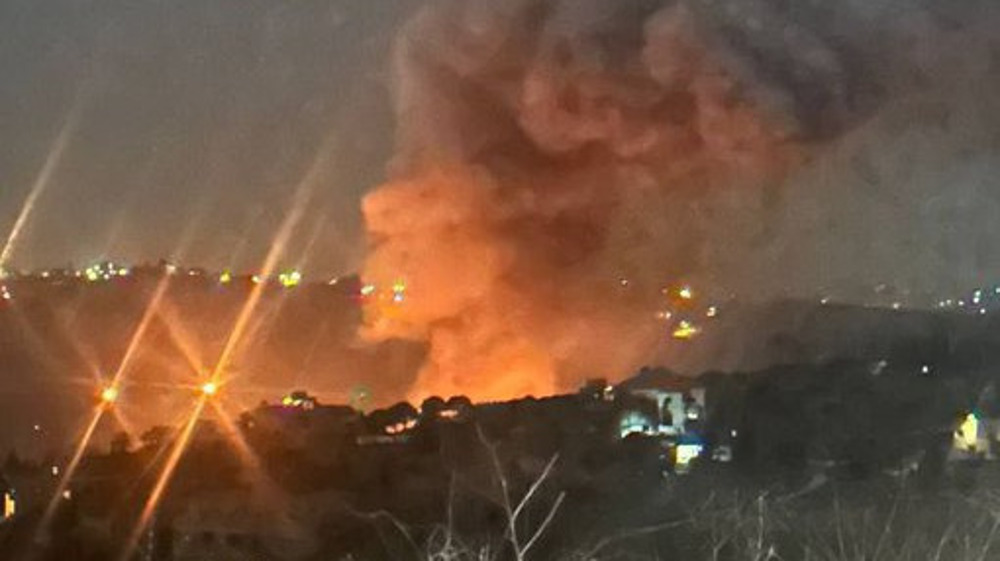




 This makes it easy to access the Press TV website
This makes it easy to access the Press TV website